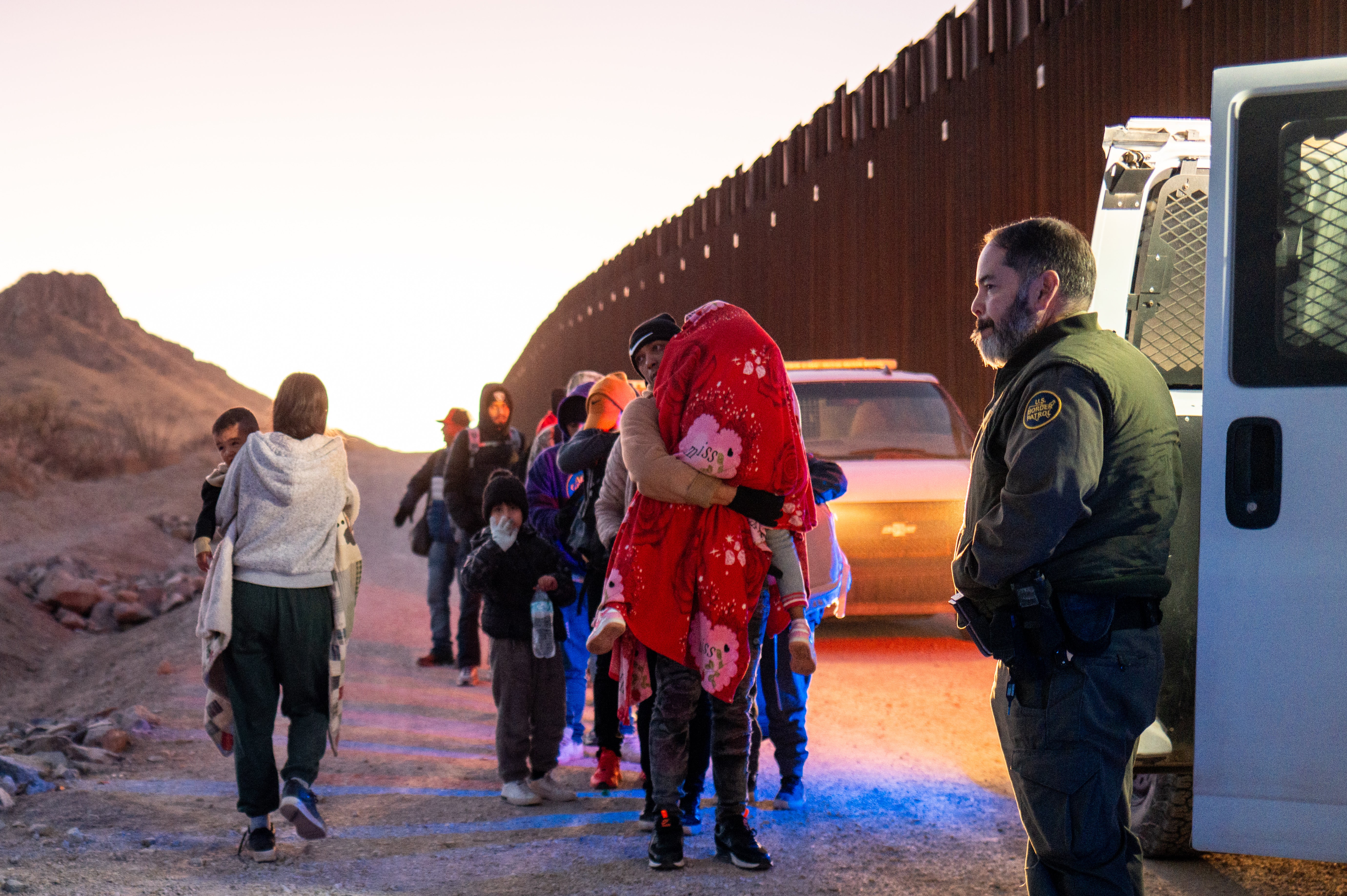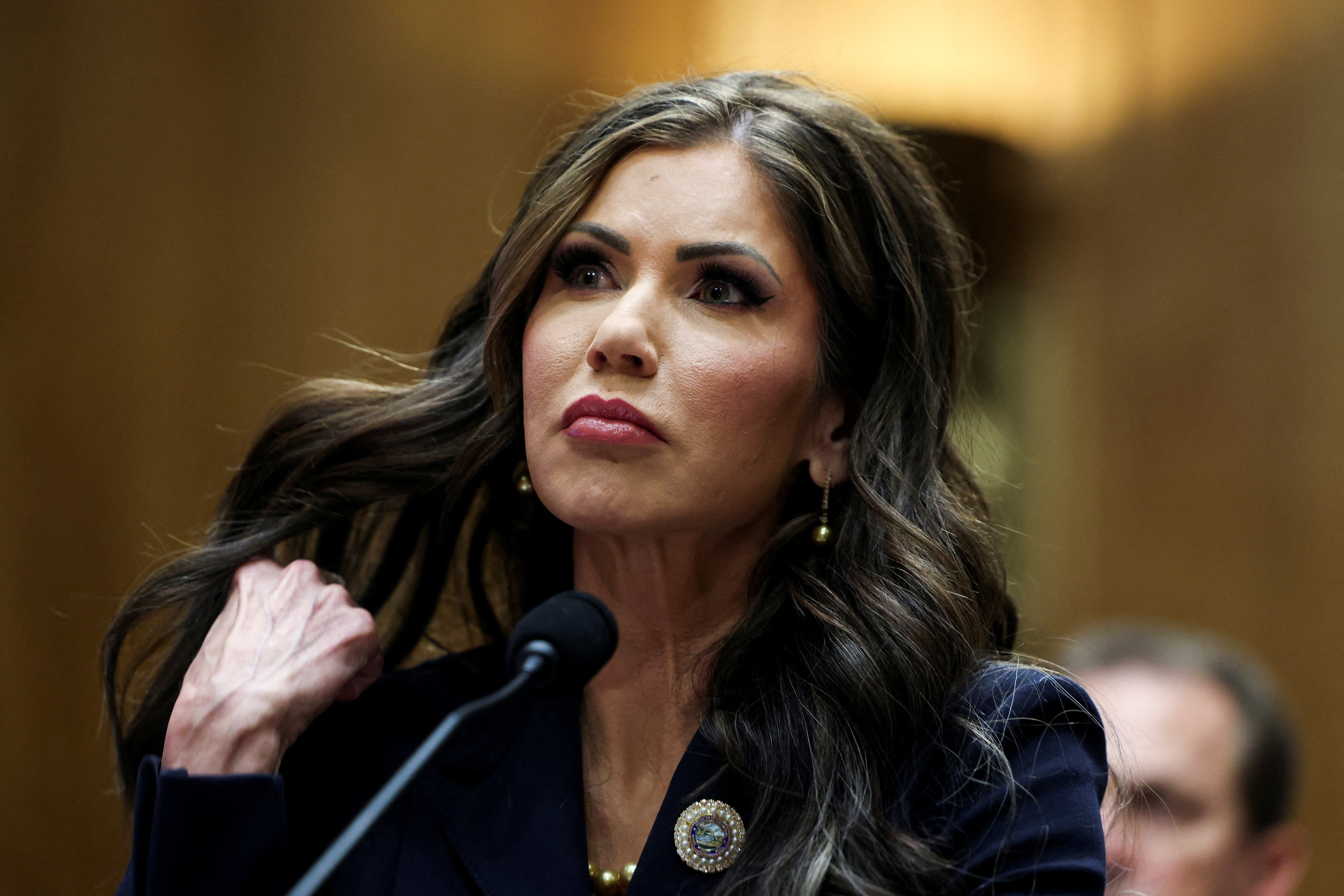Civil rights groups and immigration attorneys are preparing for what they expect will be a flood of actions from Donald Trump within his first days in office, laying the groundwork for his “mass deportation operation” that could impact millions of immigrants and their families.
Trump is expected to swiftly announce plans to gut legal immigration pathways while reinstating policies reversed under Joe Biden and demanding members of Congress approve billions of dollars in new funding to arrest and detain people living in the country illegally, along with their citizen children.
Following his inauguration on January 20, Trump is widely expected to “flood the zone with anti-immigration actions,” according to Naureen Shah, deputy director for government affairs at ACLU.
Advocacy groups anticipate a combination of “executive orders, agency actions and requests to Congress for funding and immigration bills to enlarge its authority” and “intimidate all elected officials across the country into going along with his mass deportation agenda,” Shah told reporters Friday.
Trump is expected to expand the use of 287(g) agreements under the Immigration and Nationality Act and boost funding for the program, which effectively deputizes local law enforcement to work with federal agencies to enforce federal immigration laws.

His administration is expected to compel state and local governments to embrace his plans by threatening to withhold federal funding — an attempt to “hold communities hostage” that will “embolden him to do it again and again” when it comes to legal battles over local policies on LGBT+ rights and other hot-button issues, Shah said.
Civil rights groups also anticipate Trump pushing for the quick approval of billions of dollars from Congress to expand the nation’s detention system to house tens of thousands of people targeted for deportation proceedings.
His incoming “border czar” Tom Homan has said he needs a minimum of 100,000 beds to detain undocumented immigrants — more than double the 40,000 beds under current funding levels.

Trump also is expected to reinstate Title 42 expulsion, relying on a public health emergency mechanism to deny people seeking asylum from entering the U.S. Trump previously invoked Title 42 to broadly deny entry during the COVID-19 pandemic.
He is also expected to test the scope of Section 212(f) of the Immigration and Nationality Act, which grants the president broad authority to “suspend the entry” of certain immigrants into the United States.
During her Senate confirmation hearing on Friday, Trump’s nominee for Homeland Security Secretary Kristi Noem said the administration will revive the so-called Remain in Mexico program — which forces immigrants to stay on the other side of the southern border while their legal asylum claims are being processed.
She said the administration will also “eliminate” the CBP One app, which allowed people living outside the country to request an appointment at an official port of entry on the U.S.-Mexico border to begin their asylum claims.
More than 930,000 people have used the CBP One app to schedule appointments since it was introduced in January 2023.

Trump is also expected to issue an executive order that will terminate the humanitarian parole program for some immigrants from Cuba, Haiti, Nicaragua and Venezuela, which opened a legal pathway for more than 500,000 people from those countries to remain in the United States in an attempt to discourage illegal immigration.
The president-elect is also expected to end a similar program for Afghans.
The actions will end up bringing an “even greater strain” on the US-Mexico border, Shah said.
Some of Trump’s actions are expected to happen “swiftly and furiously,” while others may be constrained by anticipated legal battles and constitutional tests, or until they get a “rubber stamp” of approval in Trump-friendly courts, according to Shah.
But his overall message creates a “climate of fear,” according to Wendy Cervantes, director of immigration and immigrant families at the Center for Law and Social Policy.
Homan has repeatedly said that U.S. citizen children could end up being detained and deported alongside their noncitizen parents, while families have asked for clarity from advocates and legal groups about the specter of immigration raids that could target workplaces, schools, and places of worship.
“There is simply no safe way to detain a child,” Cervantes said.
Trump has separately announced plans for ending birthright citizenship, declaring a national emergency to deploy U.S. military assets for immigration enforcement, and invoking the long-dormant Alien Enemies Act of 1798, which would give him the unprecedented authority to target foreigners for removal, without due process, based solely on their place of birth or citizenship.
Homan, meanwhile, has been meeting with members of Congress to introduce Trump’s agenda — and reportedly tempering their expectations for what Trump can do with the resources at the government’s disposal.
Pressed on Friday whether it would be Noem or Homan in charge of border policy, Noem said: “The president will be in charge of the border.”
“It’s a national security issue, and the president is in charge of this country and has made a promise to the American people, and we will fulfill his agenda,” she said.
She called Homan “an incredible human being.”
“I obviously will be, if nominated and confirmed, and put into the position of being the Department of Homeland Security secretary and responsible for the authorities that we have in the actions that we take,” she said.
“If he is going to be making decisions,” Democratic Senator Andy Kim said, “then he should come before this committee as well.”



